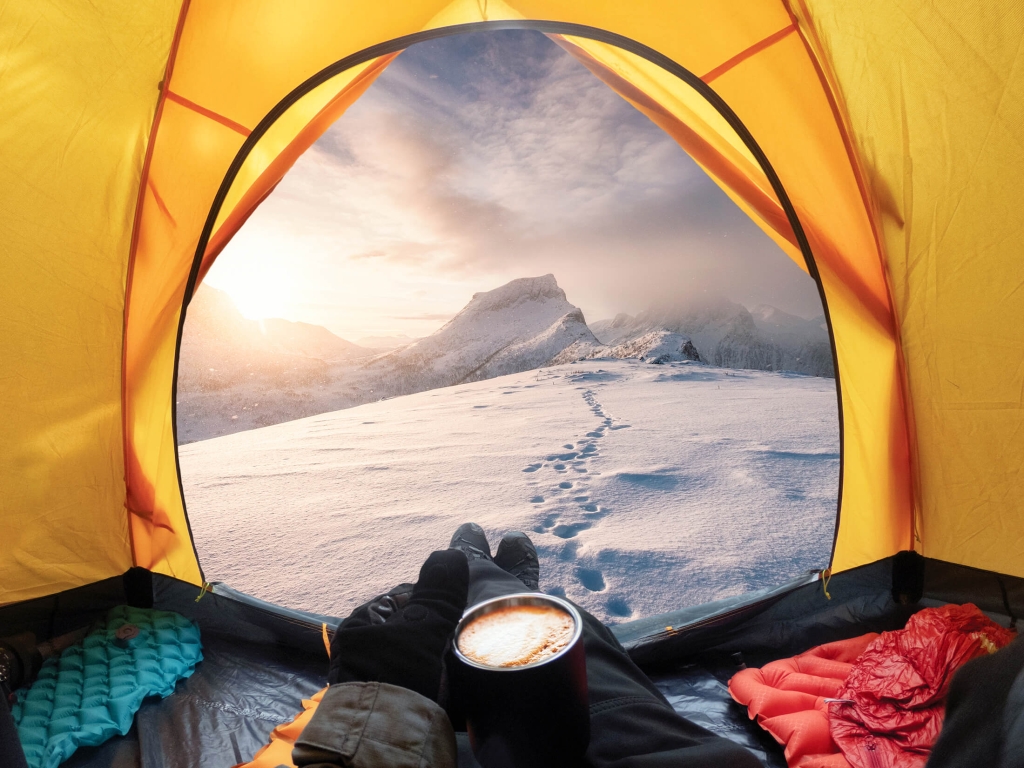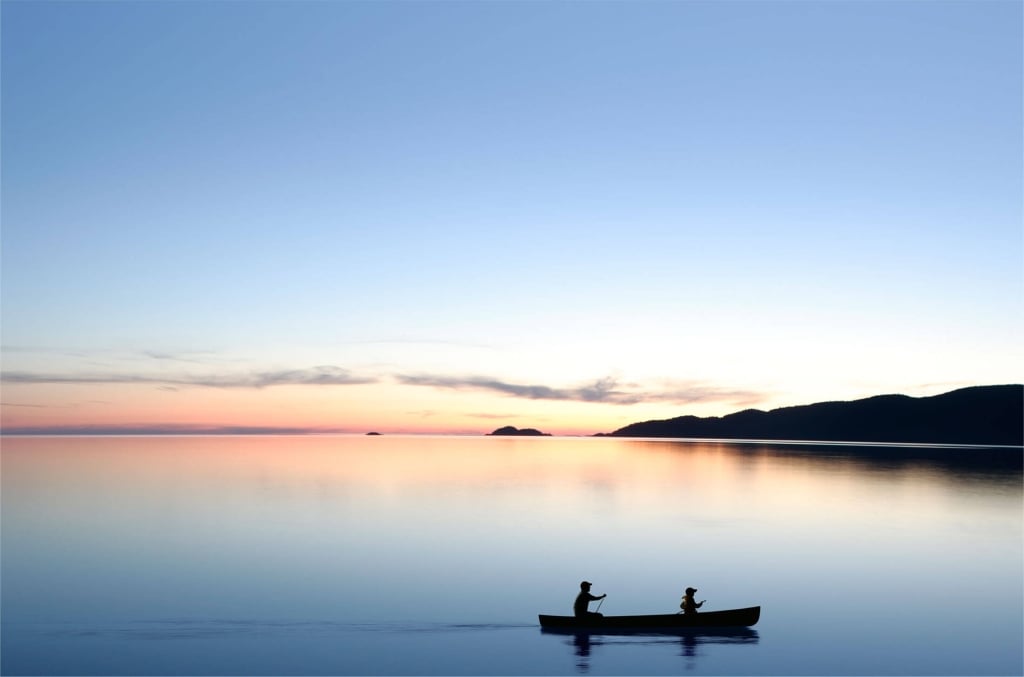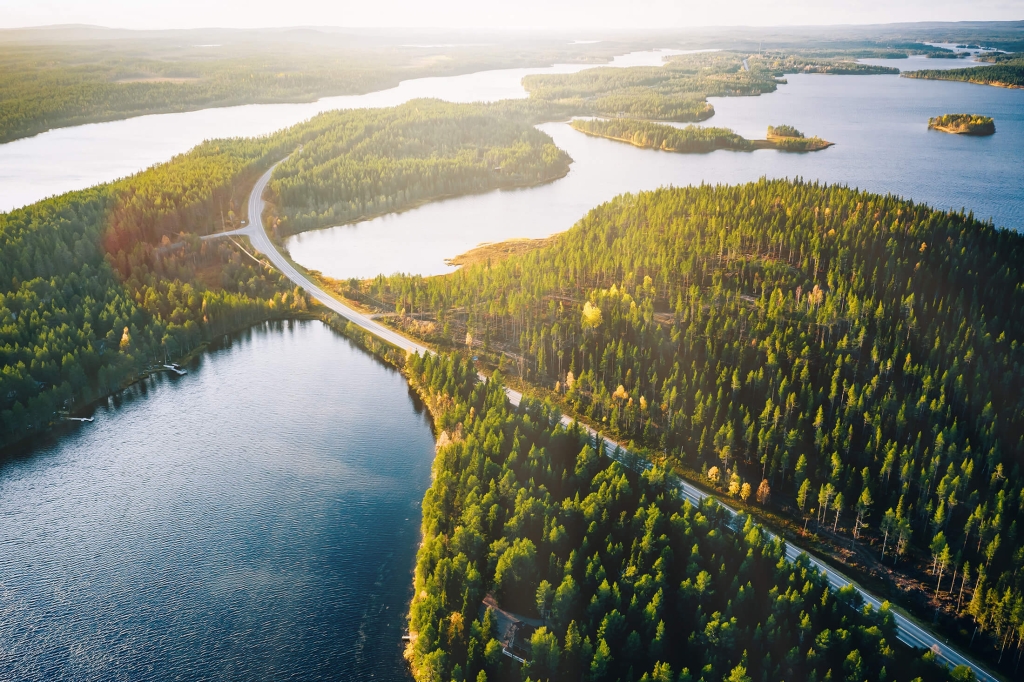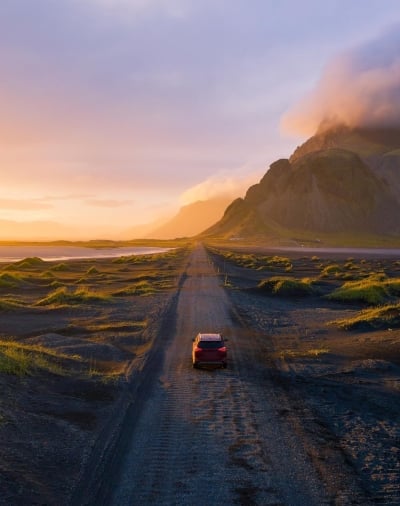The freedom to roam is known as “Everyman’s right.” In Swedish, it is ‘allemansrätten,’ in Norwegian, it is – ‘allemannsrett,’ and in Finnish, it is – ‘jokamiehenoikeus.’
The freedom to roam is the principle, protected by the law, that gives all people the right to roam free in nature. You can sleep on mountaintops, by the lake, in a forest, or among beautiful meadows. You may put up a tent or sleep under the stars for the night anywhere in the countryside, as long as you keep at least 500 feet away from the nearest inhabited house or cabin. If you want to stay for more than two nights in the same place, you must ask the landowner’s permission, except in the mountains or very remote areas.

Beyond just sleeping, you can even pick berries and mushrooms, as well as flowers, straight from the ground – all completely free of charge. You must pay for one thing, however, and that is respect for nature and the plants and animals that live there. Leave the landscape as you would want to find it. Making noise is discouraged as this allows you to connect more with nature and not disturb others who are doing the same.
Furthermore, you can leave the land and head for the water! Canoeing, kayaking, rowing, and sailing in rivers, lakes, and oceans are generally allowed. However, motorized boats are only permitted in salt water. All waters are open for swimming except those that are used for drinking water, for obvious reasons.

Thanks to the Freedom to Roam law, outdoor recreation has become a major part of the national identity for these Nordic countries. It keeps both nature and the people wild and free. The main sites to see in these countries are their natural wonders, such as Norway’s fjords, Lapland in Sweden and Finland, as well as many lakes, rivers, and coast lines, not man-made monuments.
The freedom to roam even extends to the countries’ national parks. Can you imagine showing up to Glacier or Yosemite National Park, and not having to pay a fee? Norway’s Jotunheimen National Park is one of the top National Parks of the world! It is known for its scenery including tall mountains, epic glaciers, wonderful hiking opportunities, and diverse wildlife such as reindeer, elk, mink and wolverines. The name Jotunheimen means ‘the home of the giants’ in Norwegian and refers to Norway’s 23 highest mountains, all of which are within the national park. Visitors are free to walk and ski wherever they want while in the park and trusted to show consideration and respect so that it can be enjoyed for generations to come.

The beautiful forests and lakes of Sweden and Finland are places you are welcome to explore and calm your mind from the hectic city life. Just remember that arctic nature, particularly that of Lapland, is fragile. Thus, you must tread carefully, and work even harder to leave no trace. These places are unique to the world, and while they deserve to be admired, if they are lost, there are no others like them.
So enjoy it, take care of it, and pass on your knowledge and love to future generations.

















